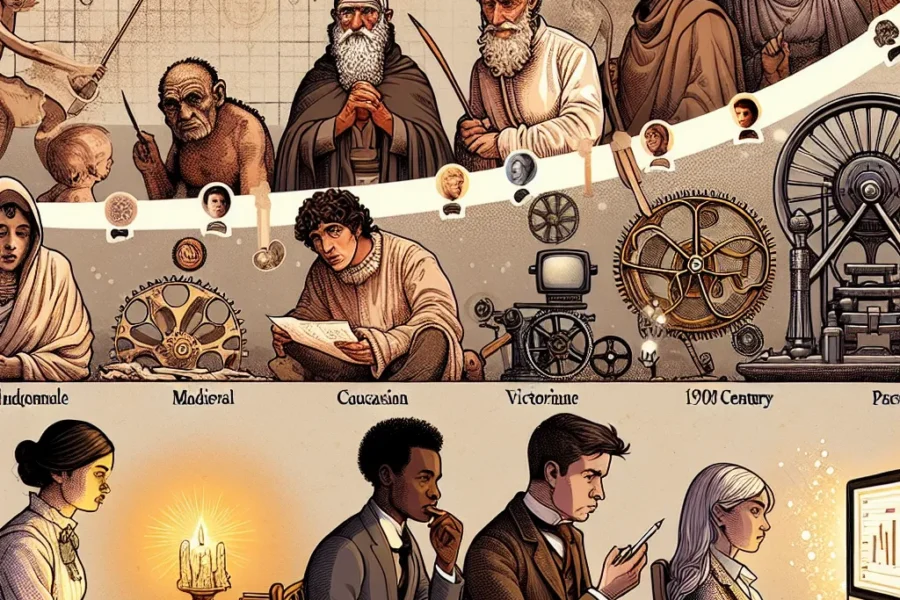Personality profoundly shapes our lives, determining how we interact with others, approach challenges, and experience the world. Among the various personality models that psychologists have proposed, one framework stands out for its widespread acceptance and scientific backing: the Big Five personality traits. Known as the cornerstone of personality theory, the Big Five model deciphers human personality into five core dimensions: Openness, Conscientiousness, Extraversion, Agreeableness, and Neuroticism. Together, they form the acronym OCEAN, which flows into nearly every corner of psychological research and application.
Openness to Experience, the first dimension, encapsulates the proclivity for imagination, creativity, and curiosity. Individuals scoring high on openness are often adventurous, eager to explore new ideas, and appreciative of art and beauty. Conversely, those with lower openness scores may prefer routine over novelty and be more conservative in their thinking. Understanding one’s level of openness can profoundly influence career choices, artistic pursuits, and personal growth opportunities.
Conscientiousness refers to the tendency to be organized, dependable, and self-disciplined. High scorers are typically methodical, goal-oriented, and responsible, while those on the lower end might struggle with procrastination and disorganization. This trait is a significant predictor of success in various life domains, including employment and relationships, making it a focus of interest for both individuals striving for self-improvement and organizations aiming to enhance workforce productivity.
Extraversion embodies the degree to which someone is outgoing, energetic, and sociable. Extraverts are drawn to social gatherings, enjoy engaging with others, and often exude enthusiasm and assertiveness. Introverts, on the other hand, may find solace in solitude, preferring quiet reflection over stimulating social interactions. Recognizing one’s extraversion level can improve interpersonal communications and personal satisfaction, guiding individuals toward environments that best suit their social preferences.
Agreeableness captures the extent to which a person is cooperative, compassionate, and trusting. Those with high agreeableness scores are known for their warmth, kindness, and empathy. Less agreeable individuals might be more competitive or challenging in social situations. This trait is critical in understanding relationship dynamics, conflict resolution, and teamwork effectiveness.
Neuroticism measures emotional stability and susceptibility to negative emotions like anxiety, depression, and anger. High scorers on the neuroticism scale may experience mood swings and stress more intensely, whereas low scorers typically display calmness and emotional resilience. Knowledge of one’s neuroticism can be crucial for mental health management and coping strategies.
The Big Five personality traits are a robust and reliable framework used universally in psychology. Their recognition across cultures and strong predictive value in various life outcomes elevate them as a foundational tool for personal development, psychological assessment, and research work. The theory’s undeniable influence is seen in areas such as clinical psychology, workplace training, and even artificial intelligence, where personality profiling assists in tailoring user experiences.
Understanding the Big Five traits provides a powerful lens through which individuals can evaluate their behaviors, relationships, and life choices. This self-awareness can lead to more informed decisions, enriching personal and professional paths. For therapists and coaches, the Big Five model is invaluable for crafting interventions that align with a client’s intrinsic personality, boosting the efficacy of their guidance.
As with any psychological model, the Big Five are not without their critiques. Some argue that the model oversimplifies the complexity of human personality, while others suggest that additional traits should be considered for a more comprehensive picture. Despite these debates, the influence of the Big Five on psychological practice and public understanding of personality remains unmatched.
The exploration of the Big Five also intersects with the burgeoning field of genetic studies, where researchers examine the heritability of these traits. Discoveries in this realm could unravel the biological underpinnings of our personality, offering even deeper insights into why we are the way we are.
Advancements in technology have facilitated the proliferation of online personality assessments, making the Big Five more accessible to the public than ever before. With a click of a button, individuals eager to understand themselves can take a test and receive a detailed report dissecting their scores across the OCEAN traits. This knowledge empowers people to make lifestyle adjustments, seek personal growth, and foster healthier relationships.
In the context of employment, the Big Five have become an integral part of the hiring process. Employers increasingly rely on these traits to predict job performance, cultural fit, and leadership potential. From recruitment to career development, understanding an employee’s Big Five profile is instrumental in maximizing their contributions and ensuring a dynamic and harmonious work environment.
The applicability of the Big Five extends beyond personal and professional growth. It aids in academic settings, where educators can adapt teaching methods to students’ personality profiles, potentially enhancing learning outcomes and student engagement. Additionally, marketing professionals leverage personality data to craft targeted campaigns that resonate with different audience segments based on their dominant traits.
In relationships, whether romantic, familial or platonic, knowing one’s own Big Five profile, as well as that of others, can lead to improved communication and rapport. Recognizing variations in personality allows for the acceptance of differences, the adaptation of expectations, and the promotion of understanding and support within one’s social circle.
As a cornerstone of personality theory, the Big Five serve not just as a map to the human psyche but also as a bridge connecting various aspects of life. Whether seeking to optimize one’s career trajectory, enhance personal relationships, or understand the underlying factors driving human behavior, the insights provided by the OCEAN model are invaluable.
The Big Five personality traits continue to stand the test of time, offering a reliable and versatile framework that transcends cultural and demographic boundaries. This quintet of characteristics provides a universal language for discussing and dissecting personality, affirming its role as a pivotal element in the ongoing quest to decode human nature. From psychology professionals to laypersons curious about the makings of the self, the Big Five model remains an essential tool for anyone invested in the nuanced realm of personality theory.



Leave a Comment